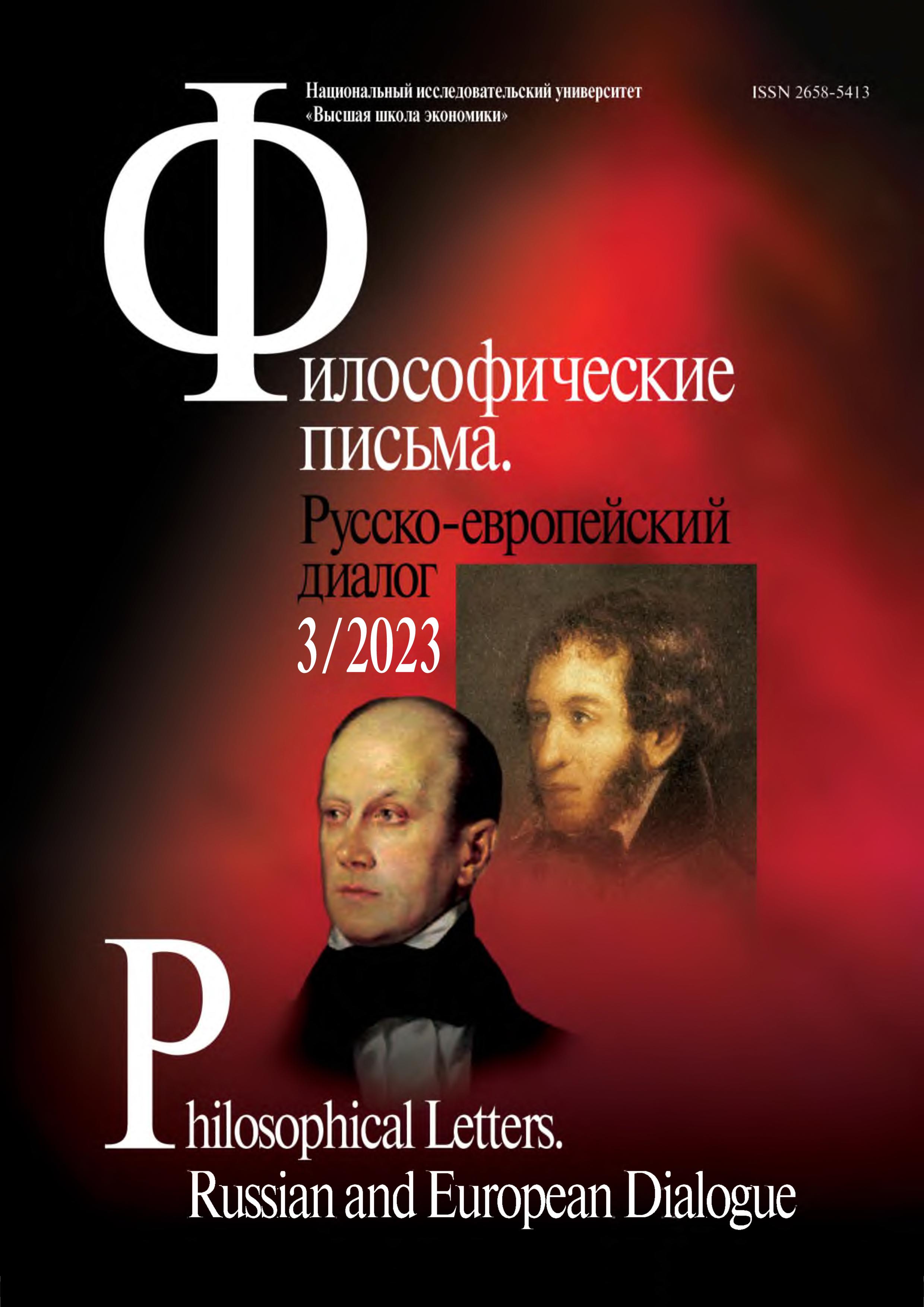The Ideal of the ‘State Church', the Concept of the Messianic Act and the Case of Peter in the Historiosophy of Valerian Muravyov
Abstract
The historiosophy of Valerian Muravyov is considered, the central idea of which was the idea of creative justification of history and human action. Relying on the religious and philosophical synthesis of F. M. Dostoevsky, N. F. Fedorov, V. S. Solovyov, Muravyov put forward the idea of peace-building, which presupposes the transformation of the entire system of social and political ties on the basis of the ideal of conciliarity. In 1917, the philosopher develops the concept of the State Church, puts forward the image of the future all-human union of people, in which the national and the universal are reconciled. In the works of the 1920s, Muravyov deduces the concept of a messianic act synthesizing individual and collective action and striving to transform the world. He presents the historical movement of mankind as a series of successive messianic acts. The messianic act of Vladimir, who introduced Russia into the orbit of Christian civilization, is replaced by the messianic act of Peter, who introduced it to the tradition of European secular culture. It is shown that, from the point of view of Muravyov, the case of Vladimir and the case of Peter do not represent two incompatible historical vectors. Both Vladimir, who laid the foundation of Russian history as the search for and realization of the Kingdom of truth, and Peter, who gave impetus to the development of culture, science, and enlightenment, contributed to the “universal and global cause of transformation.” Without Peter's messianic act, there would have been neither Pushkin, nor Dostoevsky, nor Russian religious philosophy, which tried to correct the bias towards secularity that became decisive in Peter's and post-Peter's time, while maintaining that attention to scientific knowledge, respect for creative action, and that faith in the creative possibilities of man, which characterized Peter's case.

